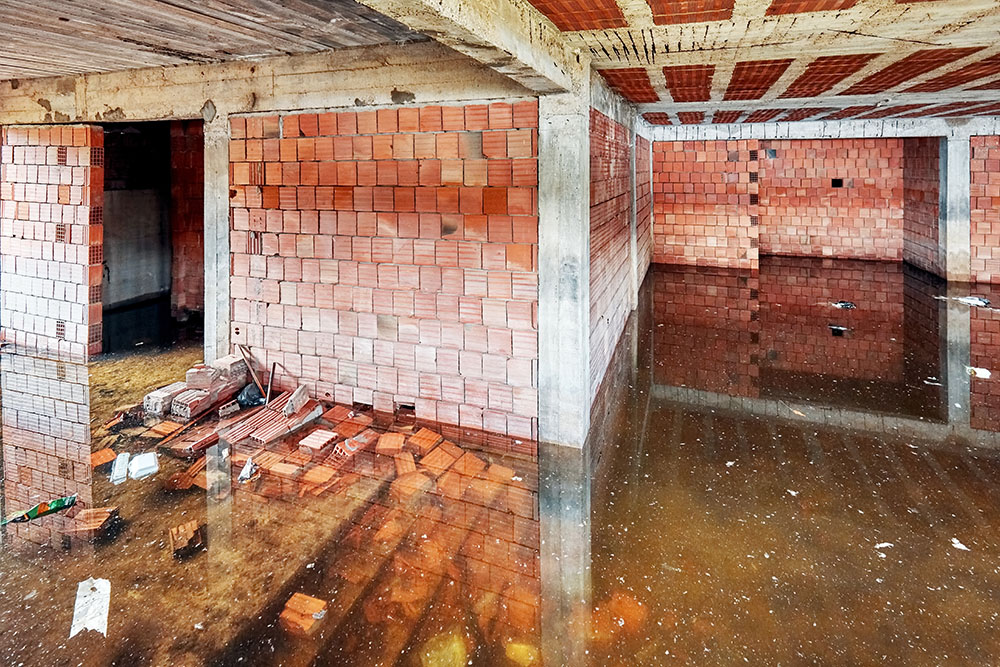What Is Black Water?

CONTENTS
- What is black water?
- Environmental implications of black water
- Black water in domestic plumbing systems
- Black water management strategies
- Flooding and black water contamination
- Frequently asked questions
- Get in touch
The term 'black water' is used in various contexts, ranging from environmental concerns to plumbing terminology. It carries significant implications and risks that must be understood and managed responsibly.
At ICE Cleaning, our flood damage cleaning services are one of the leading solutions for flood restoration in the UK. We utilise state-of-the-art technology to extract water, dry the area, and decontaminate your home - making it safe again for your family.
Read on to learn more about black water, its origin, composition, and the measures required for its responsible management.
What is black water?
Black water refers to wastewater that originates from toilets. This type of waste contains significant amounts of biological contaminants or pollutants, making it highly unsanitary and potentially harmful.
Black water is typically generated from toilet flushes but can also come from kitchen sinks or dishwashers where food wastes are disposed of. Its composition includes pathogens such as bacteria and viruses and various dissolved and particulate organic material types.
This high level of contamination classifies black water as a biohazard requiring specific handling protocols for its safe management as outlined by environmental agencies.
Blackwater and other wastewater types
Wastewater produced in residential settings falls under three types: black water, greywater, and clearwater, based on their source within the home. Greywater comes from showers, baths, and hand basins, while clearwater originates from rain gutters or appliances like air conditioners.
Greywater: The main difference between greywater and blackwater is their pollutant levels. While both contain contaminants that require treatment before disposal or reuse, the greywater treatment method selection's lower concentration means it is more treatable than black water.
Clearwater: Cleaner than either black or grey waters due to a lack of soap residues or organic matter, clearwater can be reused easily with minimal treatment.
Understanding these distinctions is crucial for effective wastewater management in residential settings. It helps homeowners and tenants make informed decisions about appropriate waste disposal methods to prevent environmental damage and health risks.
Environmental implications of black water
Black water has the potential to cause substantial harm to local ecosystems. When dumped into natural bodies of water, it introduces harmful bacteria and pathogens, which can disrupt aquatic life forms and degrade overall water quality.
The excessive nutrients in black water can also trigger algal blooms, leading to hypoxic conditions that suffocate marine organisms.
Beyond this, black water also poses serious public health threats. It harbours disease-causing microorganisms like E.coli or salmonella, which could lead to severe illnesses when humans come into contact with contaminated waters or consume food products from polluted areas.
Responsible management strategies are crucial for preventing the negative impacts associated with black water.
Effective sewage treatment systems must be implemented across urban and rural communities - converting this waste product into safe substances before released back into the environment.
Black water in domestic plumbing systems
In residential settings, black water comes from the use of toilets. Every time a toilet flushes, the resulting wastewater becomes classified as black water due to its potential contamination with harmful bacteria and viruses.
Other sources may include dishwashers or washing machines when food or human waste contaminates them.
Given hazards presented by black water in domestic environments like homes or flats; proper disposal methods are important for public health safety measures. There are several treatment options available:
- Sewage treatment plants: This method involves removing pollutants from sewage before discharging them back into rivers or seas.
- Aerobic septic systems: An environmentally friendly option that uses oxygen-loving bacteria to break down organic materials present in sewage effectively reducing pollution levels substantially.
- Anaerobic digestion: This process breaks down organic matter in sewage using bacteria that thrive in oxygen-free environments, producing biogas as a by-product which can be used for energy generation.
Ultimately, the treatment method depends on factors such as the volume of black water generated and local regulations. It is always advisable to consult with a specialist cleaning service provider to ensure proper management and disposal of black water.
Black water management strategies
Various treatment technologies are available today to handle black water effectively. These range from simple septic systems commonly found in rural homes to more complex systems, including:
- Septic systems: These are underground wastewater treatment structures that use natural processes to treat sewage at a domestic level.
- Mechanical treatment plants: These plants utilise mechanical means and chemical treatments to remove contaminants from the wastewater before discharging it back into the environment.
- Biofilter systems: This system employs naturally occurring microorganisms attached to filters through which the polluted waters pass; these microbes consume organic pollutants, thereby purifying the effluent.
Homeowners and landlords can take proactive measures to manage black water effectively. Regular maintenance of plumbing systems, prompt attention to leaks or blockages, and proper disposal of waste materials contribute towards responsible black water management.
Flooding and black water contamination
When flooding occurs, black water can quickly spread throughout properties, causing extensive damage. Floodwaters often carry this contaminated waste beyond the immediate area, disrupting normal sanitation processes and increasing public health risks.
Managing the aftermath effectively after a flood involving black water contamination requires professional intervention by specialist cleaning services.
These experts possess advanced equipment for complete decontamination, ensuring safe disposal according to regulatory standards while restoring your home to a habitable state as swiftly as possible.
In addition to reactive measures following a flood event, preventive steps are also crucial. Regular inspection of plumbing systems, installation of backwater prevention valves and maintenance around your property can significantly reduce the risk of black water contamination during flooding events.
Frequently asked questions
What does black water do to your body?
Black water can carry harmful pathogens and chemicals that lead to serious illness if ingested or contacted.
What is black water made of?
This wastewater includes toilet waste, which means it's loaded with bacteria, viruses, and organic matter.
What grey water?
Greywater flows from sinks, showers, and appliances.
What is black water and why is it expensive to treat?
Treating black water is costly because its high pollutant load demands complex purification processes to make it safe again.
Get in touch
We at ICE Cleaning offer thorough flood restoration services that employ leading technology and industrial-grade solutions to clean your home. We can be on-site the same day as your first call, dispatching an emergency team to your location anywhere in the UK.
To learn more about our flood clean-up services, get in touch with us at 0208 066 0360 or enquiries@icecleaning.co.uk. Our emergency services are available across the UK, 24/7, all year round, so we can help you with a flood no matter where you are, or what time it may be.

Speak with me today,
I’m here to help
By asking you a few questions either via phone or email I can immediately provide a realistic estimation of the cost.
You’re in good company. We’ve cleaned for the following commercial clients… View all

Why choose us?
- Cater to a wide variety of cleaning situations
- Nationwide coverage, available 24/7
- Cater to commercial and domestic clients
- Free survey provided prior to quotation
- Emergency response team
- Offer a bespoke service designed to suit all your needs
- All technicians hold professional health and safety qualifications, including BICSc, IOSH, Dewpoint Professional & Safe Contractor
We’re fully accredited
We place best practise, professional expertise and health and safety at the core of our business. We’re fully compliant with all legal obligations. You can view a list of our accreditations below, or visit our Health & Safety page for more information.











-RGB-small.1707319151.jpg)




















